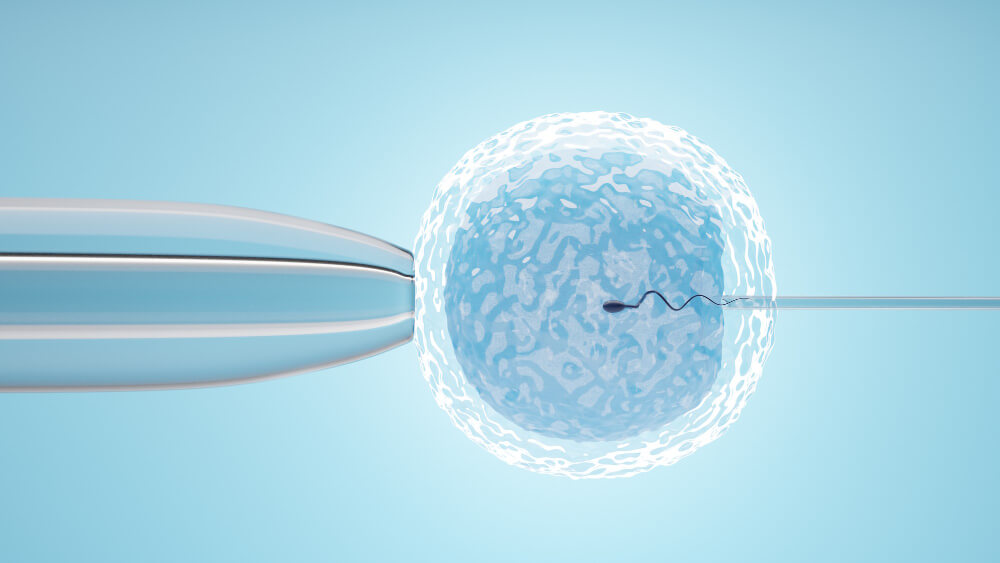The surrogacy program is the most important achievement of modern reproductive medicine, which has fundamentally changed the prospects for combating the problem of infertility. This revolutionary method is a real solution for couples who do not have the opportunity to have a child in any other way. Surrogacy, as a medical technology for overcoming infertility, is gaining more and more popularity in Georgia due to its high efficiency and the favorable legislative framework in the country.
According to statistics, every seventh couple in the world faces the problem of infertility, and for a certain part of these couples, the surrogacy program becomes the only solution. This is especially true in cases where the woman does not have a uterus, has serious medical problems with maintaining pregnancy, or when multiple attempts at artificial insemination have been unsuccessful.
What is surrogacy and how does a surrogacy program work?
The development of assisted reproductive technologies has made it possible to overcome infertility even in cases that were considered medically incurable years ago. The successful implementation of surrogacy programs is undoubtedly one of the most important achievements in reproductive medicine.
A surrogacy program provides a unique opportunity to have a genetically own child for women who do not have a uterus – whether due to a congenital condition (for example, Rakhitansky-Küster syndrome) or as a result of surgical removal of the uterus. Before the development of assisted reproductive technologies, such a condition automatically meant that a woman would never have a genetically own child. However, artificial insemination (IVF) and the introduction of surrogacy programs into medical practice have completely changed this reality.
The surrogacy program also successfully helps women who have persistent problems maintaining pregnancy, or who have serious illnesses in which pregnancy and childbirth are categorically contraindicated due to serious health risks, or who have already had multiple unsuccessful attempts at artificial insemination for unexplained reasons.
Technically, surrogacy is a specialized program of artificial insemination (IVF), in which embryos grown in laboratory conditions are transferred not into the uterus of the genetic mother, but into the uterus of a specially selected surrogate mother, who then carries them in her womb until birth. A surrogate mother is a woman who takes responsibility for the future child throughout the entire period of its intrauterine development.
Who can become a Surrogate Mother?
According to Georgian legislation, any healthy adult woman who already has at least one healthy child of her own can become a surrogate mother, although it should be noted that the preferred age for surrogacy is considered to be 18-38 years. Women often choose surrogacy for two main reasons: humanitarian (help from relatives) or financial. Professional surrogacy agencies help potential parents select the optimal surrogate mother, taking into account their individual needs.
In reality, surrogate mothers take full responsibility for this process. They clearly understand that this is not their genetic child, that they only temporarily play the role of a “host” for the conceived life, and that this is their work, after the successful completion of which they will receive an agreed financial reward.
Throughout the entire process of the surrogacy program, qualified specialists monitor the surrogate mother’s compliance with all medical requirements for the safe conduct of pregnancy, before and after the birth process.
It is important to note that the surrogate mother has no genetic connection to the child. Immediately after the birth of the child, according to Georgian law, based on the legal agreement concluded between the surrogate mother and the biological parents and the official certificate issued by the clinic, a birth certificate is issued, where the names of the biological parents are registered as the legal parents of the child. This is a significant advantage of Georgia compared to other countries.
Financial aspects of a Surrogacy Program
The cost of a surrogacy program is a significant factor that worries many couples. This cost includes the remuneration of the surrogate mother, who rightfully demands appropriate compensation, although it is worth noting that the surrogate mother can be a close relative or friend, if this person meets the medical and legal criteria for a surrogate mother. In such cases, the issue of financial compensation can be resolved on the basis of a mutual agreement, which may reduce the overall cost of the procedure.
Surrogacy Program Stages and Process
When implementing a surrogacy program, the initial medical stages of treatment are similar to standard protocols for classical in vitro fertilization (IVF). During the preparatory stage, in parallel with the preparation of legal documentation and detailed agreements, a formal contract is drawn up between the surrogate mother and the biological parents in accordance with Georgian legislation. The contract describes in detail the rights, duties and responsibilities of both parties.

The surrogacy program begins with controlled stimulation of the biological mother’s ovaries.
When the follicles reach the appropriate size, follicle puncture and follicular fluid aspiration are performed using a minimally invasive procedure. The obtained eggs are fertilized with the biological father’s sperm and grown in a special environment in the laboratory for 3-5 days to the blastocyst stage. The created embryos can be immediately transferred to a pre-stimulated uterine cavity or the embryos can be frozen and stored in the laboratory using the vitrification method.
After the embryos are frozen, a special preparation of the surrogate mother’s endometrium is performed to receive the embryo. This process is controlled by a qualified reproductive specialist using modern ultrasound and hormonal monitoring. On the appointed day, high-quality embryos are transferred to the pre-prepared uterine cavity of the surrogate mother, where, in case of successful implantation, the future baby will go through the entire development path until birth.
Approximately on the 12th or 14th day after embryo transfer, a special laboratory test determines the level of human chorionic gonadotropin (HCG) in the blood, which is the main marker of pregnancy. In case of a positive result, a confirmatory ultrasound scan is performed.
After confirmation of pregnancy, the surrogate mother continues to be under constant supervision of a qualified reproductive specialist until at least the 12th week of pregnancy, in order to appropriately continue hormonal support therapy to maintain the pregnancy.
Surrogacy program effectiveness and chances of success
Thanks to the many years of experience of modern reproductive centers, surrogacy programs are implemented with particularly high efficiency. With the joint efforts of qualified reproductive specialists, embryologists and other specialists, the dream of infertile couples to have their own child becomes a reality.
The caring, individual and highly qualified approach of a team of professionals to each patient, combined with a firm determination to fulfill their dream, helps to overcome all obstacles and finally have the long-awaited child.
Advantages of a surrogacy program
The surrogacy program represents an innovative and effective solution for many couples who have specific reproductive challenges. The main advantages of this method are:
- Maintaining a genetic connection – Through a surrogacy program, a couple has the opportunity to maintain a genetic connection with their child, which is crucial for many families.
- Medical safety – the entire process takes place under strict medical supervision, which significantly reduces the risks for both the surrogate mother and the future baby.
- Legal clarity – The legal regulations for the surrogacy program in Georgia are clearly defined, ensuring the transparency and legal solidity of the process.
- Psychological support – A team of professionals provides ongoing psychological support at every stage of the process, helping both the biological parents and the surrogate mother overcome emotional challenges.
- Individual approach – Each surrogacy program is tailored to the needs of a specific couple, which increases the chances of success and improves the overall experience.
Surrogacy Program – A Ray of Hope for Childless Couples
Ultimately, surrogacy is a real solution for couples who are unable to have children through other methods. Although this path can be challenging, with the right medical team, support system, and a suitable surrogate mother, the process can become a rewarding journey that culminates in the long-awaited goal of holding your own child in your arms.
Surrogacy is not just a medical procedure, but a life-changing experience that has enabled thousands of couples to become parents despite their reproductive difficulties.
The surrogacy program in Georgia is distinguished by its high quality, international-standard medical services, and flexible legal environment. That is why more and more couples are choosing Georgia for their surrogacy program, including those from abroad.
This innovative way allows couples who would otherwise be unable to have children to experience the great joy of parenthood and create a full-fledged family, which is one of the most important and infinitely valuable parts of human life.
If you would like to learn more about the surrogacy program, or are considering becoming a surrogate mother, contact us today and our team of professionals will be happy to consult with you.


